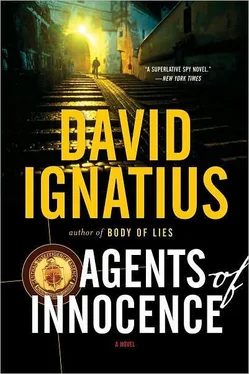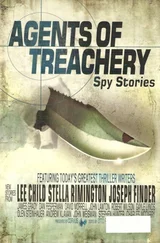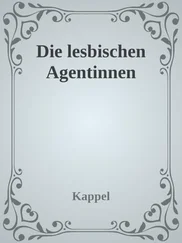David Ignatius - Agents of Innocence
Здесь есть возможность читать онлайн «David Ignatius - Agents of Innocence» весь текст электронной книги совершенно бесплатно (целиком полную версию без сокращений). В некоторых случаях можно слушать аудио, скачать через торрент в формате fb2 и присутствует краткое содержание. Жанр: Шпионский детектив, на английском языке. Описание произведения, (предисловие) а так же отзывы посетителей доступны на портале библиотеки ЛибКат.
- Название:Agents of Innocence
- Автор:
- Жанр:
- Год:неизвестен
- ISBN:нет данных
- Рейтинг книги:3 / 5. Голосов: 1
-
Избранное:Добавить в избранное
- Отзывы:
-
Ваша оценка:
- 60
- 1
- 2
- 3
- 4
- 5
Agents of Innocence: краткое содержание, описание и аннотация
Предлагаем к чтению аннотацию, описание, краткое содержание или предисловие (зависит от того, что написал сам автор книги «Agents of Innocence»). Если вы не нашли необходимую информацию о книге — напишите в комментариях, мы постараемся отыскать её.
Agents of Innocence — читать онлайн бесплатно полную книгу (весь текст) целиком
Ниже представлен текст книги, разбитый по страницам. Система сохранения места последней прочитанной страницы, позволяет с удобством читать онлайн бесплатно книгу «Agents of Innocence», без необходимости каждый раз заново искать на чём Вы остановились. Поставьте закладку, и сможете в любой момент перейти на страницу, на которой закончили чтение.
Интервал:
Закладка:
Jamal returned just before midnight. He was red-faced and out of breath. Rogers put him through the same drill as before, collecting his pistol and frisking him. The room smelled of garlic and chocolate.
Jamal sat down in a chair. He had tidied up his clothes since the earlier visit and was now wearing a business suit. It was almost as if he felt he were present at an historic occasion, like the signing of a treaty that ended a war.
“I have an answer,” said Jamal.
“Very good,” said Stone.
Jamal was still puffing slightly. He seemed to have trouble actually saying the words.
“So what is it?” demanded Hoffman. “What’s the answer?”
“Yes,” said Jamal. “The answer is yes. I bring you that word from the highest authority of Fatah.”
“And what is it that Fatah is saying yes to?” asked Stone.
“Fatah will not attack American citizens or property, on the understanding that the United States will take no side in our conflict with Israel. And we will dispose of the weapons in Italy.”
“One small point,” said Stone. “It goes without saying that I cannot speak for Congress, or for our various politicians. I speak only for my agency.”
“What is more powerful than the CIA?” asked Jamal.
“What indeed?” answered Stone. “Do we have an understanding, then?”
“Yes,” said the Palestinian.
“Excellent!” Stone turned to Rogers.
“You work out the details with Tom here. I trust that the two of you can meet from time to time to compare notes on the matters we have discussed. That won’t pose any problem for you, I hope.”
“We have met before,” said Jamal. “We can meet again.”
Stone put his hand on Jamal’s elbow and walked with him slowly to the door of the apartment.
“I am so pleased to have met you,” said the American. He said it like a headmaster bidding farewell to a guest at a tea dance.
Rogers was still savoring the evening’s events several hours later over drinks in a bar on Hamra Street. Hoffman had suggested the Black Cat, but Rogers had talked him out of it. Somehow, that didn’t seem like the right place for Stone, so they went to the St. Georges instead.
Rogers was awed by Stone’s performance and told him so. The division chief had manipulated the Palestinian as gently and precisely as if he had controlled him with invisible wires. He had led the Fatah man through a maze of options and decisions, convinced him that what served the agency’s interests equally served his own, and allowed him, in effect, to recruit himself. And he had worked this miracle with a man suspected of planning to kill the President of the United States!
“There is one thing that I should tell you in all candor,” said Stone, downing his second martini.
“What’s that?” asked Rogers.
“I don’t believe I mentioned to you earlier that on my way here from Washington, I stopped off in Rome for several hours. I had one of the boys from the Office of Security give this Libyan fellow-Mr. Mumtazz-a polygraph test.”
“What happened?”
“Generally, he did fine. But on that absurd business about the assassination plot, he flunked.”
Hoffman raised his glass in a toast.
“You did a swell job,” said Hoffman. “No bullshit. It’s a pleasure to watch a real pro at work. But I gotta tell you, my friends, that the fun in this case is just beginning.”
The glasses clinked. There was an interlude of silence as they drank and reflected on the extraordinary events of the past few days. Rogers remembered something Hoffman had said the previous day.
“Tell me about Willy, the agent from Budapest,” said Rogers.
“Naw, you don’t want me to tell that old story now,” said Hoffman. “Not when we’re celebrating.”
“Yes I do,” said Rogers.
Hoffman looked at Stone. The division chief nodded yes. Tell him the story.
“Okay, but it doesn’t have a very happy ending.”
“Just tell me the damn story,” said Rogers, who was slightly drunk.
“All right. We were running a string of agents in Eastern Europe after the war. A lot of them had worked for the Germans. They were tough little men. They hated the Russians and were eager to work for Uncle Sam. But they were also scared shitless that we would sell them out.”
“Why?”
“Because they weren’t stupid. You said you wanted to hear the story, so shut up.”
“Sorry,” said Rogers.
“Willy was the one I liked the best,” continued Hoffman. “He was a Hungarian, about forty years old. His whole family had been killed in the war. Blown to smithereens. At first I thought he was trying to atone, or get revenge, or something. Later on it occurred to me that he was probably just trying to make some money. Who knows? Anyway, we were running him in Hungary and he was doing jim-dandy work for us. He had a friend in the Hungarian security service who let him photograph documents. It was a nice little operation.”
“What went wrong?”
“One day the Brits approached us. They said they had evidence that our little man was a crook. Supposedly he was smuggling American cigarettes into Budapest to make a little extra dough. It was stupid of him and made him a security risk. So we were pissed. We called in our man for a crash meeting. We did it in an insecure way. Sent him a letter at his home address. Nobody gave a shit. We thought the guy had screwed us. In any event, this poor little fucker came to the meeting with me and Stone shaking like a leaf. He was a mess. He didn’t have good answers to any of our questions.
“I still kind of liked him. Felt sorry for him. I don’t know why. But the Brits said he was bad news. Mr. Stone agreed, and I agreed. Everybody agreed. So we told him sayonara.”
“Did you ever corroborate what the Brits said?” asked Rogers.
“No,” said Hoffman. “I told you. Nobody gave a shit.”
“What happened to Willy?”
“He was dead within six months,” said Hoffman. “Served him right, in a way”
“Why?” asked Rogers.
“Because he was a fool, to have trusted us.”
Stone stopped by Rogers’s office the next morning on his way to the airport. The older man looked fit and pink-cheeked. He was dressed in what, for him, were casual clothes: a bow tie, tweed jacket, gray trousers, and ancient but well-shined brown Oxfords. Stone closed the door behind him, looked for the couch, and when he realized there wasn’t one, sat down in a chair beside the desk.
“You are couchless,” observed Stone.
“Yes, sir,” said Rogers.
“What rank are you these days?”
“I’m an R-6,” said Rogers.
“And when will you receive your leather couch and cherry-wood credenza?”
“R-3.”
“Ah well, that’s something to look forward to, isn’t it?” said Stone sardonically. “Sometimes I marvel at the pettiness of the United States government. Do they really imagine that people are motivated by the desire to obtain additional office furnishings?”
“Some people probably are,” said Rogers.
“Would you like a couch?” queried Stone. “I’ll get you one.”
“I don’t really care, to be honest.”
“No, of course you don’t.”
Stone adjusted his bow tie so that the two ends were precisely even and then got down to business.
“I want to discuss details,” said Stone.
“About handling the Palestinian?”
“Precisely,” said Stone. “God is in the details.”
Rogers nodded. Where is the Devil? he wondered.
“Now then,” said Stone. “I think that you should meet with PECOCK every few months, you or one of your agents. Keep him on a long leash. Don’t inquire too much about what he does. You’re not his nursemaid.”
“What do we do about the Israelis?” asked Rogers.
Читать дальшеИнтервал:
Закладка:
Похожие книги на «Agents of Innocence»
Представляем Вашему вниманию похожие книги на «Agents of Innocence» списком для выбора. Мы отобрали схожую по названию и смыслу литературу в надежде предоставить читателям больше вариантов отыскать новые, интересные, ещё непрочитанные произведения.
Обсуждение, отзывы о книге «Agents of Innocence» и просто собственные мнения читателей. Оставьте ваши комментарии, напишите, что Вы думаете о произведении, его смысле или главных героях. Укажите что конкретно понравилось, а что нет, и почему Вы так считаете.












